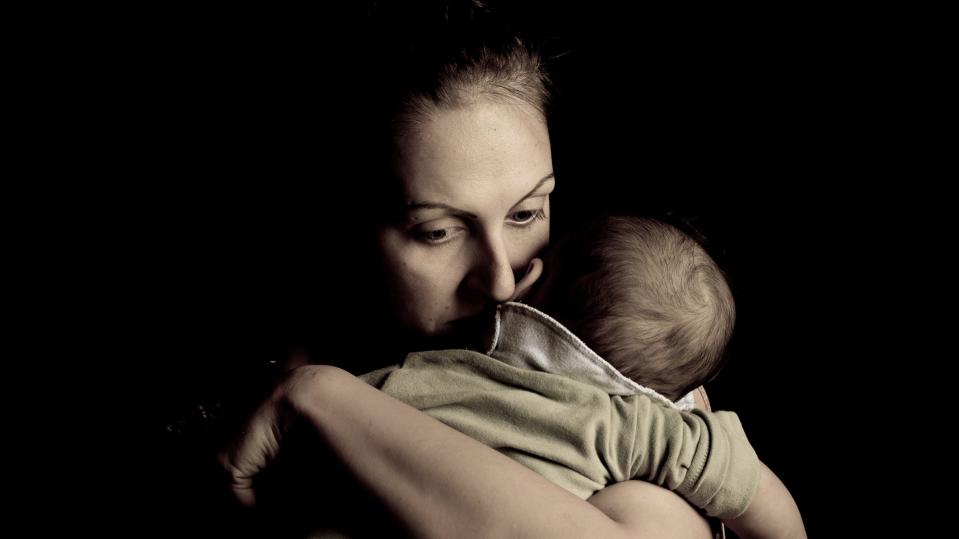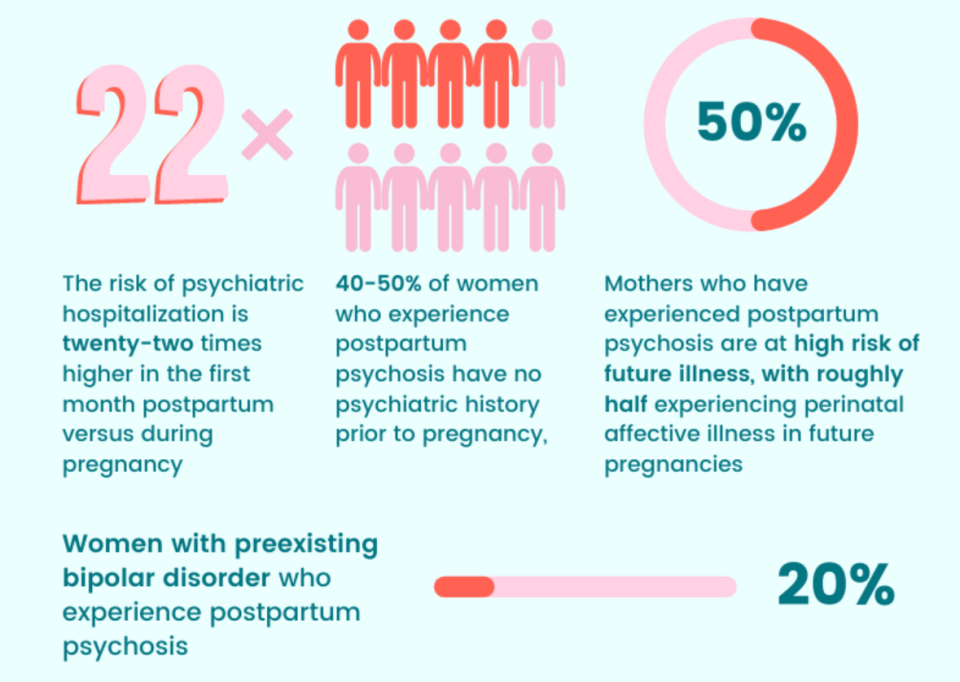Deaths of Duxbury children push postpartum depression and mental health to forefront
The deaths of two young children and a subsequent apparent suicide attempt by their mother have prompted conversations about postpartum depression and psychosis as the "unthinkable tragedy" leaves people across Massachusetts searching for answers.
Police responded to a 911 call from a man at a Duxbury home Tuesday evening where his wife, 32-year-old Lindsay Clancy, had jumped from a window, the Plymouth County District Attorney’s office said. Inside the house, children ages 7 months, 3 and 5 were found unconscious with “obvious signs of trauma.” The 3-year-old boy and 5-year-old girl, Dawson and Cora, died from apparent strangulation.
Clancy is being charged with two counts of murder and remains hospitalized, as does her 7-month-old son.

Postpartum psychosis can 'hijack' a mother's brain
Historically, cases of women who have killed their children have often involved postpartum depression or psychosis, the latter being a condition that can severely alter a person’s mental state after giving birth. If left untreated, it can pose serious dangers to both the mother and her child.
Nancy Byatt, a perinatal psychiatrist at the University of Massachusetts Medical School who is an expert on maternal depression, said postpartum psychosis can "hijack the brain."
In a nationally known case, in 2001, Andrea Yates drowned her five children in the bathtub of their Texas home. Yates had been suffering from severe postpartum depression, postpartum psychosis and schizophrenia. She was later found not guilty by reason of insanity and committed to a medical treatment facility.
District attorney:Children strangled inside Duxbury home, mother to be charged with murder
Law enforcement has said the Duxbury investigation is active and ongoing, and few details have been publicly released about the Clancy family and what exactly occurred that night. Massachusetts General Hospital confirmed Wednesday that Clancy is employed as a nurse there.
Clancy's Facebook page is full of photos of her three children, portraying a mother who deeply loved and cared for them. Experts say, most of the time, mothers who kill their children are dedicated parents who do love their kids. But conditions like postpartum depression and psychosis can significantly alter their perception of reality and, left unaddressed, in some cases can lead to the unthinkable.
"They do it because they believe it's best for them, their baby and the world, and it's often coming from a place of love and attachment," said Byatt.
Remembering the Clancy family:Vigil to be held for Duxbury family Thursday; neighbor remembers 'nice young couple'
What is postpartum depression?
Many mothers experience postpartum depression and mood changes after giving birth. According to the Massachusetts Child Psychiatry Access Program for Moms, 1 of every 7 women experience depression during pregnancy or in the postpartum period.
Byatt called postpartum depression "very common." The postpartum period is the year after giving birth. For some women, it can be the happiest time of their life, and for others, the worst. Symptoms of postpartum depression can include sadness, mood swings, anxiety, crying spells and difficulty sleeping. Byatt said these symptoms can start during pregnancy too.
"These disorders are linked with negative outcomes for mom, baby and family," she said. "Mental health and substance use disorders combined are the leading cause of maternal mortality in the United States."
What is postpartum psychosis?
Postpartum psychosis is a more rare, severe condition. It’s beyond the “baby blues,” experts say.
Symptoms can include feeling confused and lost, having obsessive thoughts about your baby, hallucinating or having delusions, sleep problems, paranoia and, at its most severe, making attempts to harm yourself or your baby. It can lead to life-threatening thoughts or behaviors and requires immediate treatment.
What's working in New England:Fighting to prevent drug overdoses in pregnant women, new moms

"With psychotic symptoms, that's when you get really concerned," Byatt said. "People may hear voices other people don't hear. They may see things other people don't see. They may hear voices telling them to hurt their baby. These are altruistic delusions."
According to Postpartum Support International, a nonprofit organization educating the public about emotional changes in women during and after pregnancy, of the women who develop postpartum psychosis, there is an approximately 5% suicide rate and a 4% infanticide rate associated with the illness. Women with bipolar disorder are at higher risk of developing postpartum psychosis, research shows.
Resources in Massachusetts: How to get help with postpartum depression and psychosis
Health care providers say signs of postpartum psychosis require immediate attention, and help is out there.
Treatment can consist of therapy or medication, Byatt said, and often a combination of both. Mindfulness, nutrition and peer support are also important.
"People often think, 'I'm pregnant or postpartum and I'm going to focus on my baby and ignore my own needs,'" said Byatt. "It's total nonsense. The best thing that we as mothers, as parents, can do for ourselves and our baby is to get the mental health support and treatment that we need. That is the most important message to get out there. We need to change the conversation around this."
Massachusetts General Hospital runs a Postpartum Psychosis Project, which includes research, resources, survivor stories and a consultation line for medical providers treating patients with the diagnosis.

The hospital encourages individuals and loved ones dealing with signs of postpartum psychosis to reach out to Postpartum Support International, which has chapters in nearly all 50 states, including Massachusetts. The organization has a help line (1-800-944-4773), access to various support services and a provider directory for each state. The state of Massachusetts' website also offers a resources page on the topic.
A new federally funded maternal health hotline launched last year. The National Maternal Mental Health Hotline can be reached via call or text at 1-833-943-5746. People in crisis can also dial 988, the new three-digit dialing code that connects callers to the National Suicide Prevention Lifeline.
This article originally appeared on USA TODAY NETWORK: What is postpartum depression, psychosis? Questions amid Duxbury case

